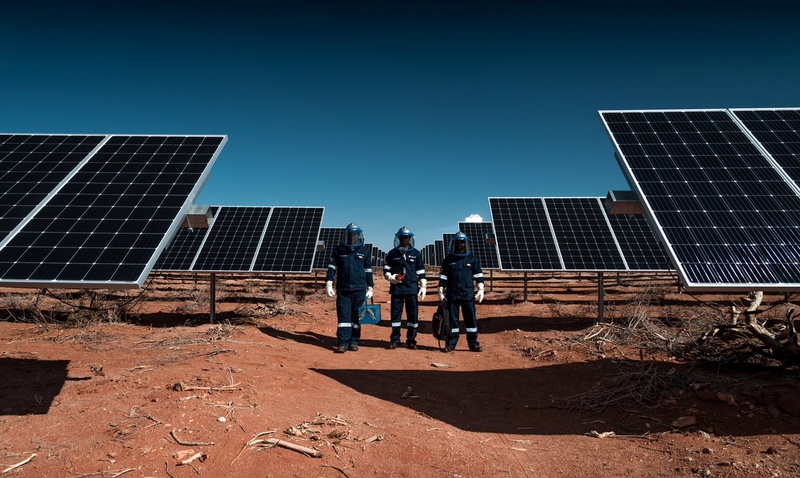April 23 NEC Energy News
¶ “Upington Solar Power Complex Lauded For Positive Social Impact” • South Africa’s Upington solar power complex was lauded for its positive social impact on the communities around it. Scatec Solar had connected the 258-MW solar PV complex to the national grid in 2020.The Upington solar power complex consists of three solar PV plants. [EWN]

¶ “Germany’s Decision To Phase Out Nuclear Power Is Wise” • “With the shutdown of its last three nuclear power plants, Germany has completed its phase-out of nuclear power. As the minister responsible for nuclear safety in Germany, I believe that this was an excellent – indeed, visionary – move.” Here are five compelling reasons. [Arab News]
¶ “The Sodium-Ion Battery Is Coming To Production Cars This Year” • Sodium is much less expensive than lithium, and it has a similar chemistry for batteries. Sodium is less energy-dense than lithium, but sodium batteries have big cost advantages. A number of companies are working on sodium batteries, and the first ones are set to come out this year. [CleanTechnica]
¶ “Ford To Build Electric Vehicles In Ontario, Rethinks China Strategy” • Ford builds the Ford Edge and Lincoln Nautilus at its factory in Oakville, Ontario, a facility that opened in 1953. Now Ford says it will invest $1.5 billion to transform the Oakville Assembly Complex into a Canadian hub for manufacturing EVs and battery packs. [CleanTechnica]

¶ “The North Seas Can Be The World’s Biggest Power Plant” • A statement by the prime ministers and other leaders of eight nations of western Europe says, “We need offshore wind turbines – and we need a lot of them. We need them to reach our climate goals, and to rid ourselves of Russian gas, ensuring a more secure and independent Europe.” [POLITICO]
¶ “Single-Use Plastic Is Wreaking Havoc On The Planet. Here’s What You Can Do To Minimize Your Impact” • The life cycle of plastic begins with oil and gas are extraction. The fossil fuels are refined in facilities that use extreme temperatures and significant amount of water and energy. The plastic is used once. Then it is a waste and climate problem. [CNN]
For more news, please visit geoharvey – Daily News about Energy and Climate Change.
